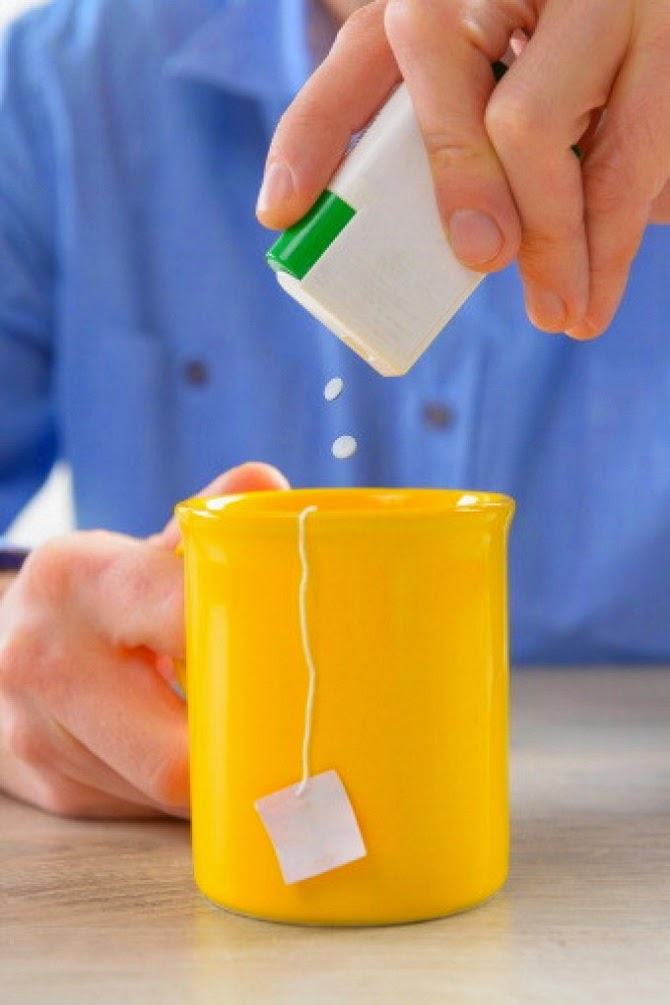Artificial sweeteners raise blood sugar levels
Aspartame, saccharin and sucralose can cause metabolic alterations. , According to a study published in the journal Nature, presented at the congress of the European Association for the Study of Diabetes in Vienna. . Experts: "Important results, but it is best to avoid alarmism"
The news did not fail to stir debate and controversy but the source - the prestigious scientific journal Nature - leaves no room for doubt about the seriousness of the discovery. According to a study just published in the online version, in fact, some artificial sweeteners, particularly aspartame, saccharin and sucralose can cause metabolic changes that result in an increase in blood sugar. The sweeteners are greatly used - and often prescribed also by many dieticians to contain the weight - in place of sugar because, compared with a sweetening power of hundreds of times higher than normal sugar, have on the contrary very little calories, from zero to 2 for almost 4 grams against sugar.
They hide in snacks, soft drinks and candy. Are contained in sweetened beverages or soft drinks, snacks, candy, chewing gum, yogurt, biscuits and often discussed the fact that they are harmful to health, with different results and even conflicting. Their use is however not recommended by many scientific institutions in children under three years old, pregnant women and lactating mothers. This time, the Israeli study - conducted on mice and also of men - leaves little room for doubt. The group Suez, in fact, fed mice by adding saccharin, aspartame or sucralose to normal diet and found that sweeteners altered the animals' metabolism by increasing your blood sugar at significant levels and also developed a condition called pre-diabetes glucose intolerance. The next step was to analyze the so-called intestinal microbiota, now considered a real organ, identifying even there a substantial modification of the intestinal flora compared to mice in the control group. Then transplanting mice with elevated blood glucose in healthy mice the intestinal microbiota was also a rise in blood glucose levels in mice with previously normal.
The study. The Suez group has also studied the intestinal microbiota of more than four hundred people and found that the bacterial population of consumers of sweeteners was profoundly different from that of non-users. Moreover, the consumption of sweeteners was correlated with higher levels of blood sugar. The study authors have thus enlisted seven volunteers consumers not to consume sweeteners for a week. After just four days, half of them had high blood sugar and an altered composition of the intestinal bacterial population, just as in mice. Finally, the fecal transplant by volunteers consumers of sweeteners in mice also caused consumers in a recent rise in blood glucose.
"The strength of this study - pressed Antonio Gasbarrini, Professor of Gastroenterology at the Gemelli hospital in Rome and scholar of the intestinal microbiota - is that it has been shown that sweeteners have altered intestinal microbiota and that this change has led to increased blood glucose. Sweeteners, therefore, can modulate the microbiota, like food. been proved that the microbiota, a real organ, exchange information with the brain, the liver and adipose tissue.'s a new actor, owns three million genes, more than a thousand species of different bacteria and has a powerful immunological and metabolic activity. Most of these bacteria are found in the colon and small intestine and is nourished only by indigestible fibers arriving in the colon.'s new is that for some years we the technology to identify the microbiota while before I did not know existed and we are gradually discovering what is involved in many diseases. "
"Avoid alarmism." What will happen now? "We do not want panic among the people and among diabetics - pressed Enzo Bonora, president of the Italian Society diabetes (Sid) - these studies are important and have been published in a prestigious journal, but before becoming a nutritional recommendation and to be translated into practice clinic will have to wait for further confirmation. our company has never recommended the use of sweeteners in place of sugar because small amounts are also allowed to diabetics. And the results of this study comforting our position. "Also in prospect - name instead Giorgio Sesti, President-elect Sid - that the damage of sweeteners at the level of metabolism is due to an adverse selection of intestinal bacteria is conceivable in the future, through changes in diet, use of antibiotics or probiotics bowel of able to prevent diabetes, although certainly not a cure. "

Comments
Post a Comment